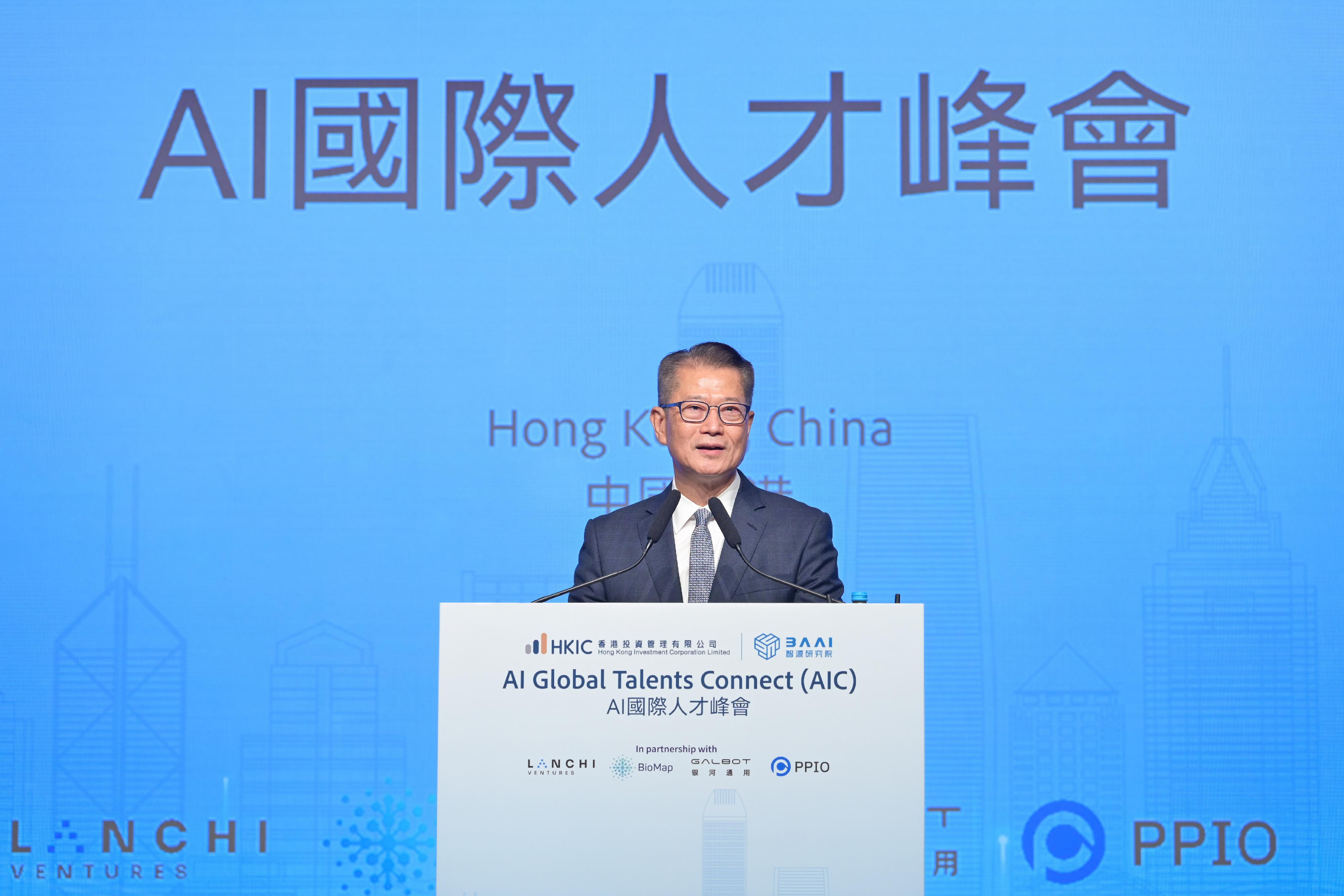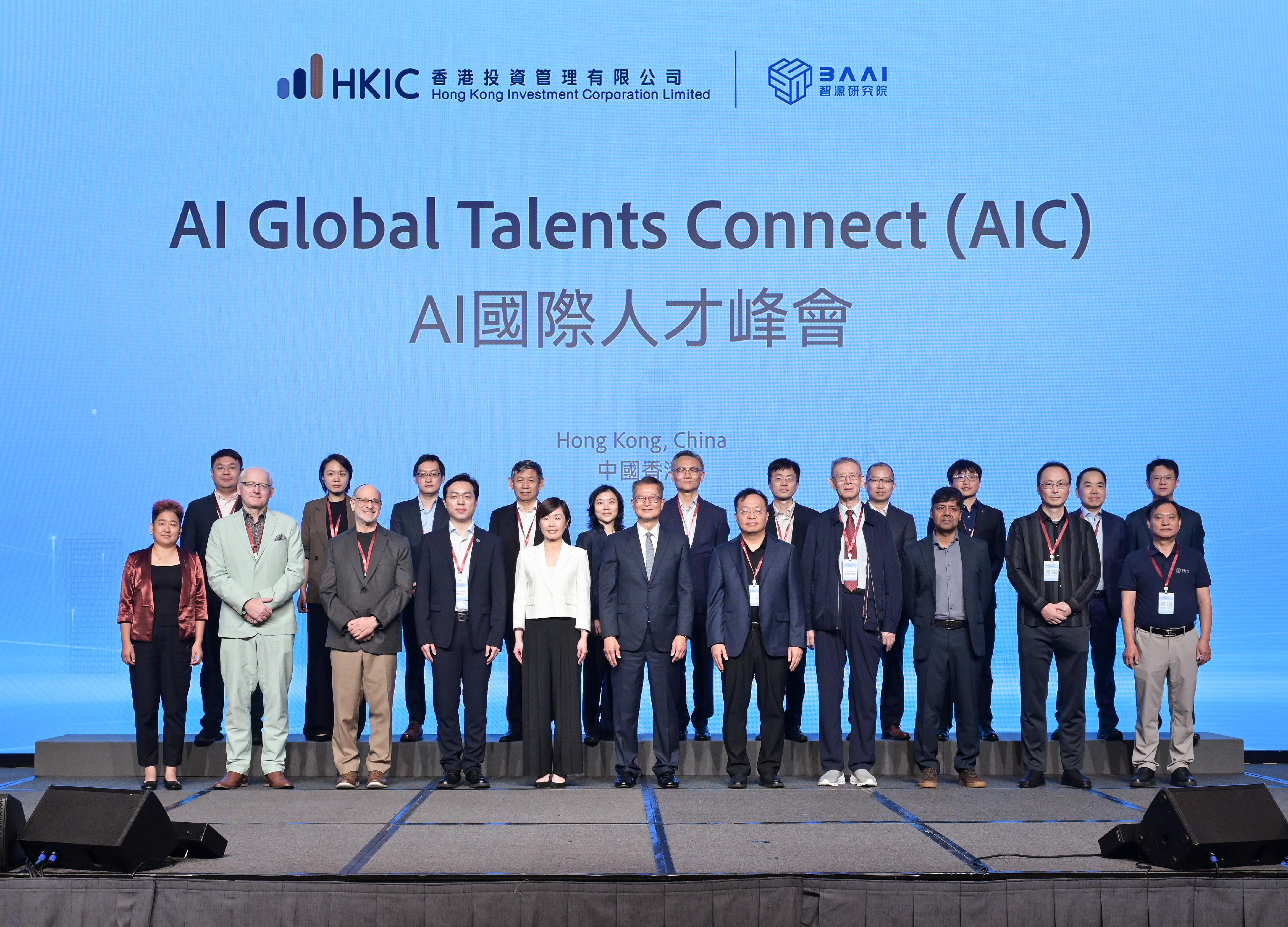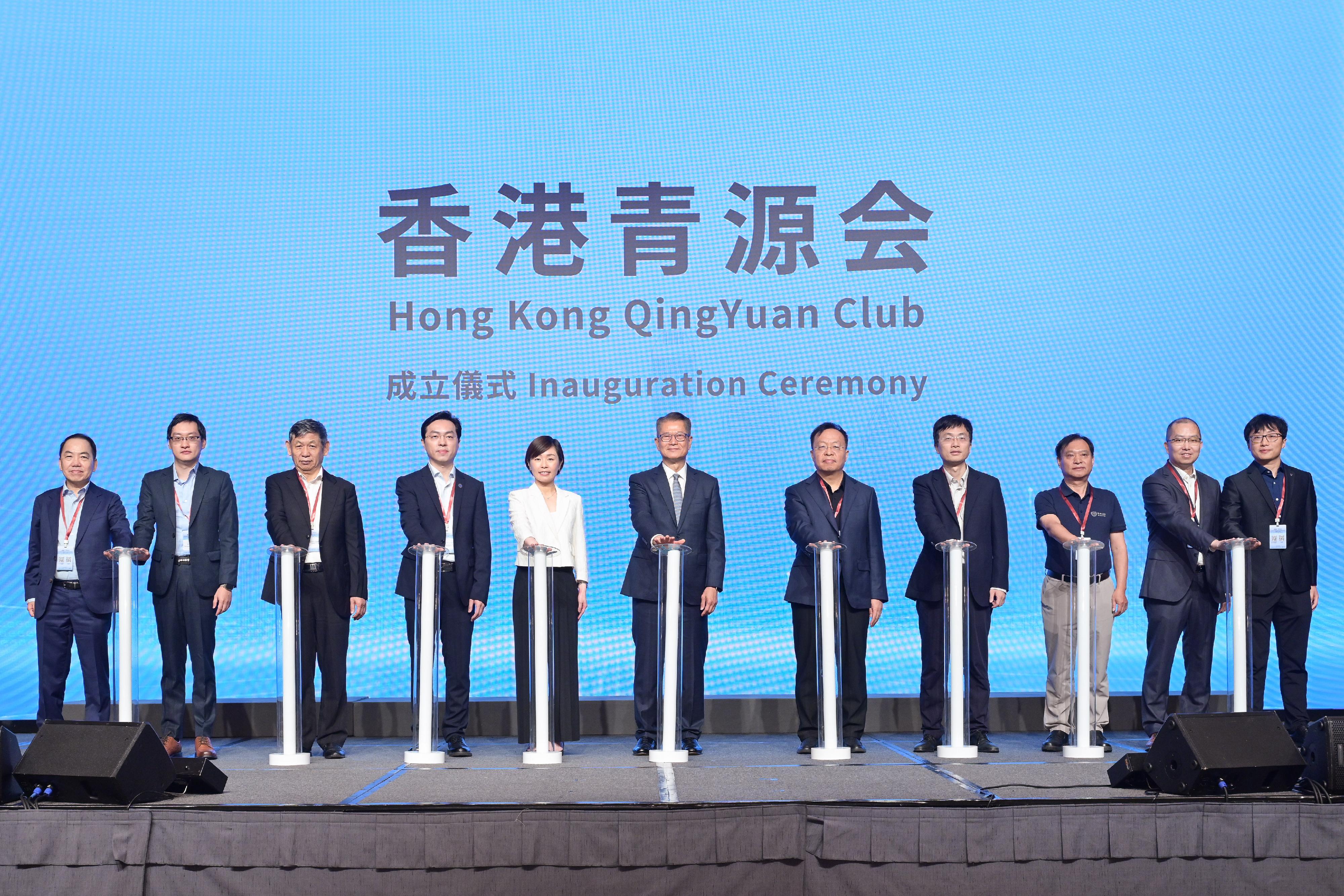Speech by FS at AI Global Talents Connect (English only) (with photos/video)
****************************************************************************
Clara (Chief Executive Officer of the Hong Kong Investment Corporation, Ms Clara Chan), Professor Huang (Chairman, Beijing Academy of Artificial Intelligence, Professor Huang Tiejun), Dr Wang (President, Beijing Academy of Artificial Intelligence, Dr Wang Zhongyuan), distinguished guests and students, ladies and gentlemen,
Good morning, and welcome to Hong Kong. It is a pleasure to join you today for the inaugural AI Global Talents Connect, hosted by the Hong Kong Investment Corporation Limited (HKIC) and the Beijing Academy of Artificial Intelligence (BAAI). This landmark occasion brings together some of the world's most brilliant minds in artificial intelligence - researchers, innovators, entrepreneurs and thought leaders.
AI is fundamentally reshaping industries, economies and societies, and ultimately, the global economy's competitive landscape. Its impact is both far-reaching and accelerating. Unlike many other technologies, where breakthroughs may take years, advances in AI often unfold within months. And its rapid progress has transformative promise across every sector. At the same time, it presents complex challenges around ethics, governance and responsibility for the society. For example, how can we prevent algorithm bias? How can we address concerns about job displacement? How can we ensure the safe and responsible development of AI, and that the red lines are not crossed? They demand collective wisdom and global co-operation.
Given the geopolitical landscape, technological fragmentation is intensifying. Nevertheless, no single country or region can - or should - dominate technological innovation. More breakthroughs will emerge from open dialogue, knowledge exchange and cross-border collaboration among scientists, innovators, engineers, entrepreneurs and businesses.
In this context, building an open, collaborative and inclusive community for AI is vital. Not only is it the key to advancing science and technology, it is also essential to attracting and retaining global talent, which is the driving force behind every innovation.
Here in Hong Kong, we are fully committed to that vision. We have prioritised AI as a core industry for future development, a key enabler to upgrading our traditional industries and sectors. And we are leveraging our unique strengths across multiple dimensions.
First, in technology. Hong Kong is home to some of the world's top academic institutions. We take pride that three of our universities rank among the global top 20 in artificial intelligence and data science. These institutions are producing cutting-edge research and nurturing next-generation talent.
We have also been making significant, long-term investments in industry research and development. That includes the Hong Kong Artificial Intelligence Research and Development Institute, which we aim to establish next year. It will put emphasis on translating research into real-world applications, in areas such as healthcare, finance, logistics, education, and more.
Second, access to capital. As Asia's premier international financial centre, Hong Kong provides tech start-ups and companies at various stages with a full spectrum of funding options, from angel and venture capital to private equity, patient capital and IPOs (initial public offerings). By connecting global capital with promising and mature projects, we will create a dynamic environment where great concepts and ideas can scale and thrive.
Third, data advantage. Under our "one country, two systems" framework, Hong Kong guarantees the free flow of information and data. At the same time, we will introduce mechanisms for cross-boundary flow of data from the Chinese Mainland to Hong Kong for research and development purposes, under clear safeguards and robust data-security protocols. This will enable Hong Kong to serve as a unique convergence point of Mainland and international data, and a testing field for different applications. These are valuable assets in the age of AI.
Fourth, and most important, talent. Hong Kong's international and cosmopolitan culture, high quality of living, simple and low tax regime, and world-class education system make it an attractive destination for global talent.
But to ensure an abundant influx of AI talent, we want to raise our visibility and global standing in AI. That's why, in this year's Budget, I proposed the organisation of a young scientist forum on AI. I am delighted to see it come to life today, thanks to the joint efforts of the HKIC and the BAAI.
This forum is underpinned by two fundamental elements: openness and cross-disciplinary collaboration. It welcomes scientists, policymakers, investors and entrepreneurs from across geographies, whether they come from the Mainland, Asia, North America, Europe, or beyond. We believe this platform will catalyse intellectual exchanges, spark new ideas, and foster more partnerships in the AI space.
I’m pleased to note a further milestone: the Qingyuan Club, one of the BAAI's most important interdisciplinary initiatives, is being brought to Hong Kong with the support of the HKIC.
The Beijing Qingyuan Club has gathered many of China's top AI scientists, including leading contributors in large language models and embodied intelligence. The establishment of the Hong Kong Qingyuan Club marks another step forward in our ambition to become a global AI hub.
I very much hope that the Club will contribute to Hong Kong's AI ecosystem in three key areas.
First, pioneering frontier technologies. This, of course, includes engaging in more cutting-edge AI research and applications. This will entail more partnerships with academic institutions, investors, start-ups and tech firms so that we build a more vibrant and robust AI ecosystem together.
Second, contributing to global exchanges on AI. Technologies and applications aside, it would also be important to participate in the global dialogue about the future of AI, in particular its safe and responsible development.
Third, nurturing talent. Leverage your networks to attract, connect and cultivate AI talent, especially young innovators who will shape the future of the industry.
Ladies and gentlemen, I look forward to the discussions, collaborations and partnerships that will emerge from today's global gathering. Let us work together to build a future where AI transforms societies for the better, and where Hong Kong plays a pivotal role in that journey.
Thank you very much.
Ends/Tuesday, August 26, 2025
Issued at HKT 11:55
Issued at HKT 11:55
NNNN





